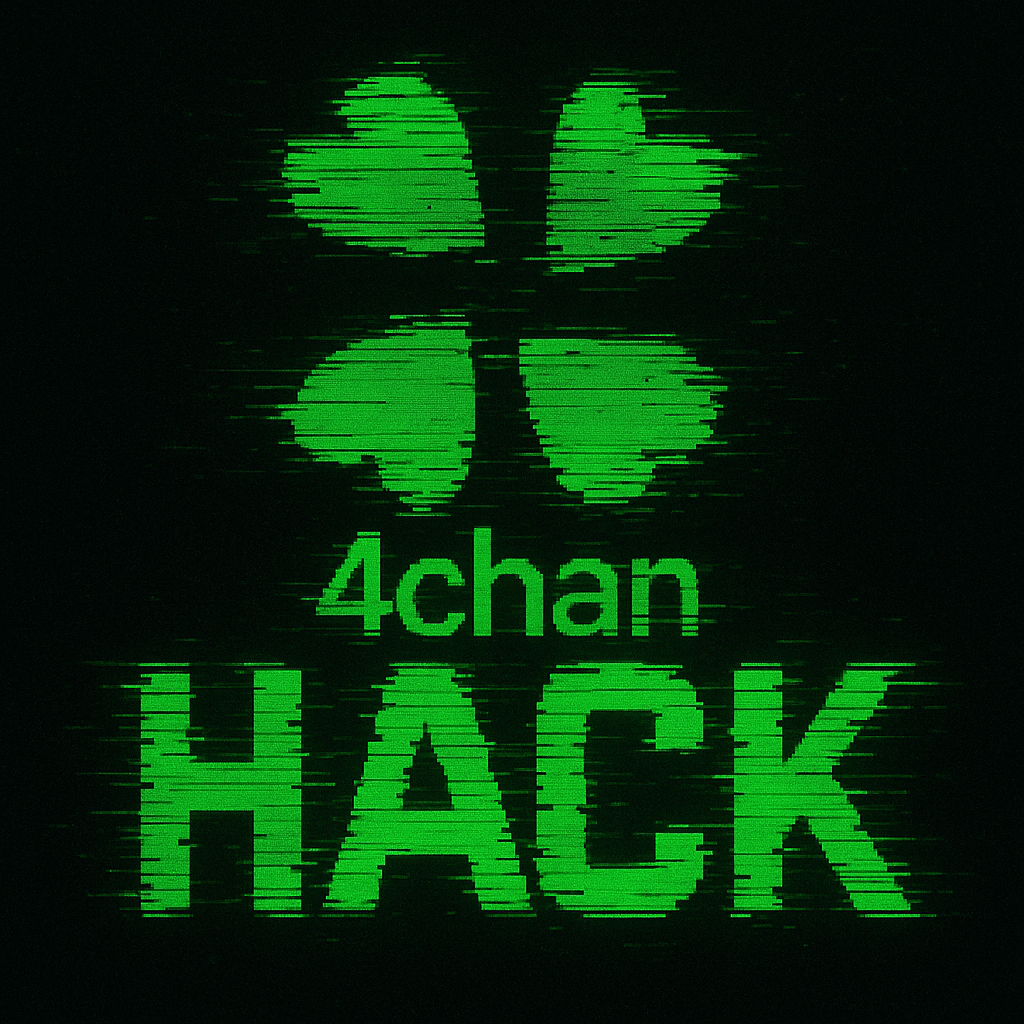
Introduction
On April 14, 2025, 4chan the controversial anonymous imageboard that has shaped internet culture for over two decades was hit by a significant cyberattack. The breach, allegedly orchestrated by an actor from a rival forum, exposed internal data including source code, administrator emails, and potentially user IP addresses. This incident has raised serious concerns about the site’s security and the future of online anonymity.
Timeline of the Attack
-
April 14, 2025: A hacker claims to have infiltrated 4chan’s systems, leaking internal data and reviving the long-defunct /qa/ board.
-
April 15, 2025: Users report that 4chan is offline and inaccessible.
-
April 16, 2025: Media outlets confirm the breach, highlighting exposure of administrator credentials and potential user data compromise.
Scope of the Breach
The attacker reportedly maintained access for over a year before executing the leak. Data exposed includes:
-
Source code of the entire site
-
Administrator and moderator email addresses
-
Potentially user IP addresses and other sensitive logs
The return of the /qa/ board, inactive since 2021, demonstrated the intruder’s high level of access.
Implications for Anonymity and Moderation
4chan’s core promise of anonymity is under threat. Exposure of moderator identities could lead to personal targeting or legal risks. Furthermore, the breach calls into question existing moderation practices and whether additional user data may yet surface.
Technical Vulnerabilities
Initial analysis suggests the hack exploited unpatched, outdated software components some unchanged since 2016. While precise CVE IDs are not all confirmed, the long gap in updates indicates multiple known vulnerabilities were likely present.
Exposed PHP Code Summary
Following the April 14–15, 2025 breach, 4chan’s entire PHP codebase (the “Yotsuba” engine) was publicly exposed. Multiple .php files from core scripts like index.php, thread.php, and admin.php to configuration files such as config.php were published on rival forums and archive sites. Researchers have verified leaks on platforms including Soyjak.party, Kiwi Farms, and several GitHub Gists, heightening risks of further exploitation and reverse-engineering. Review of the exposed code reveals significant security shortcomings: usage of deprecated mysql_* extensions instead of PDO/MySQLi, insufficient input validation permitting XSS and SQLi, and targeting of PHP 5.x with known RCE and information-disclosure vulnerabilities.
Evidence of Leaked PHP Code
-
Hackread reports that a Soyjak-forum user “claims to have breached the site and leaked its source code” including PHP files and admin tools.
-
The Verge notes the attack “reportedly exposed its source code” and even revived the dormant /qa/ board as proof of backend access
-
PCOutlet details that “the hackers… leaked the platform’s PHP source code, moderator tools, and internal emails” in compressed archives
-
DailySecurityReview confirms that “4chan’s PHP source code was also leaked on Kiwi Farms” shortly after the breach
-
Business Standard describes “speculation… that 4chan’s source code… may have been leaked,” fueling widespread sharing of
.phpfiles
Notable CVEs Potentially Related
-
CVE-2012-1823 – PHP CGI Query String Code Execution, affecting PHP <5.3.12 and 5.4.x <5.4.2, enabling remote code execution.
-
CVE-2019-11043 – PHP-FPM PATH_INFO buffer underflow remote code execution in NGINX+PHP-FPM configurations (affects PHP 7.1.x <7.1.33, 7.2.x <7.2.24, 7.3.x <7.3.11).
Other vulnerabilities identified in the exposed custom scripts (e.g., unsanitized input in thread.php and improper file upload handling) have not been assigned CVE identifiers and may represent zero-day issues in the Yotsuba engine.
Where to Find the Exposed Code
Leaked PHP components include, but are not limited to:
-
Core Scripts: index.php, board.php, thread.php, post.php
-
Administration: admin.php, moderator.php, maintenance.php
-
Configuration: config.php, database connection handlers
-
Utilities: session management classes, image‐handling scripts
These files have been mirrored in locations such as:
-
A GitHub Gist repository (unofficial mirror) containing dozens of .php files Gist
-
Download links embedded in Soyjak.party threads where the attacker first posted them hackread.com
-
Kiwi Farms posts hosting compressed archives of the leaked code
Cultural and Legal Repercussions
4chan has incubated numerous internet subcultures, some associated with extremist content. Law enforcement may leverage leaked logs for ongoing investigations. Legally, the operators could face lawsuits over insufficient data protection measures.
Conclusion
The 4chan hack underscores the dangers of neglected security practices and jeopardizes the anonymity users rely on. As the community and operators respond, this event may drive broader reforms in how distributed online forums secure and moderate their platforms.
-
BleepingComputer – “Infamous message board 4chan taken down following major hack”
-
The Verge – “4chan hacked: Outage and source code leak detailed”
-
Wired – “Inside the 4chan hack: Admin leak raises security alarms”
-
HackRead – “4chan breached by rival forum hacker”
-
Reuters – “Notorious internet messageboard 4chan has been hacked, posts claim”
-
TechRadar – “4chan hit with alleged hack; attackers cause outages, leak source code”
-
Sky News – “Is this the end of notorious 4chan internet forum?”
-
PolymerHQ – “4chan data breach: What we know so far”
-
Wikipedia – “4chan”
-
Wikipedia – “Imageboard”
